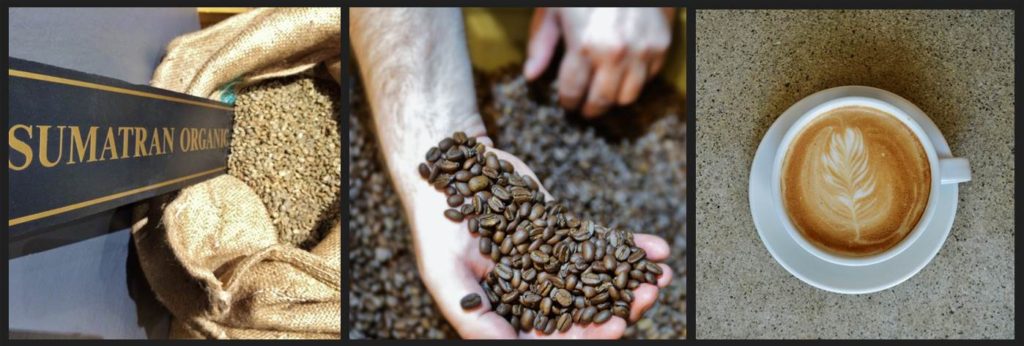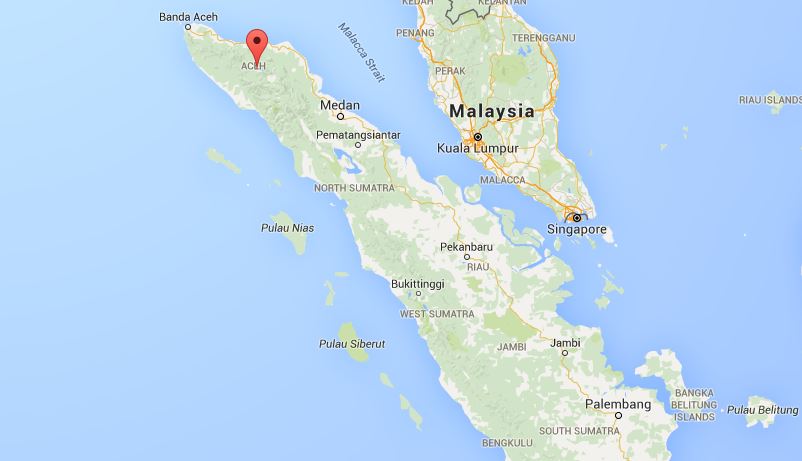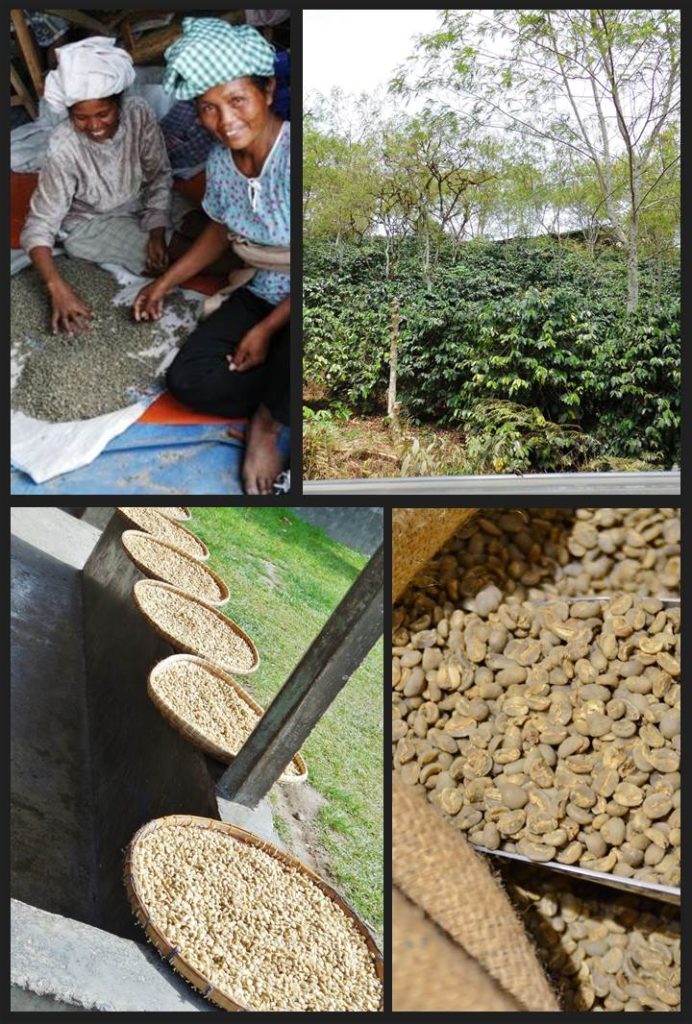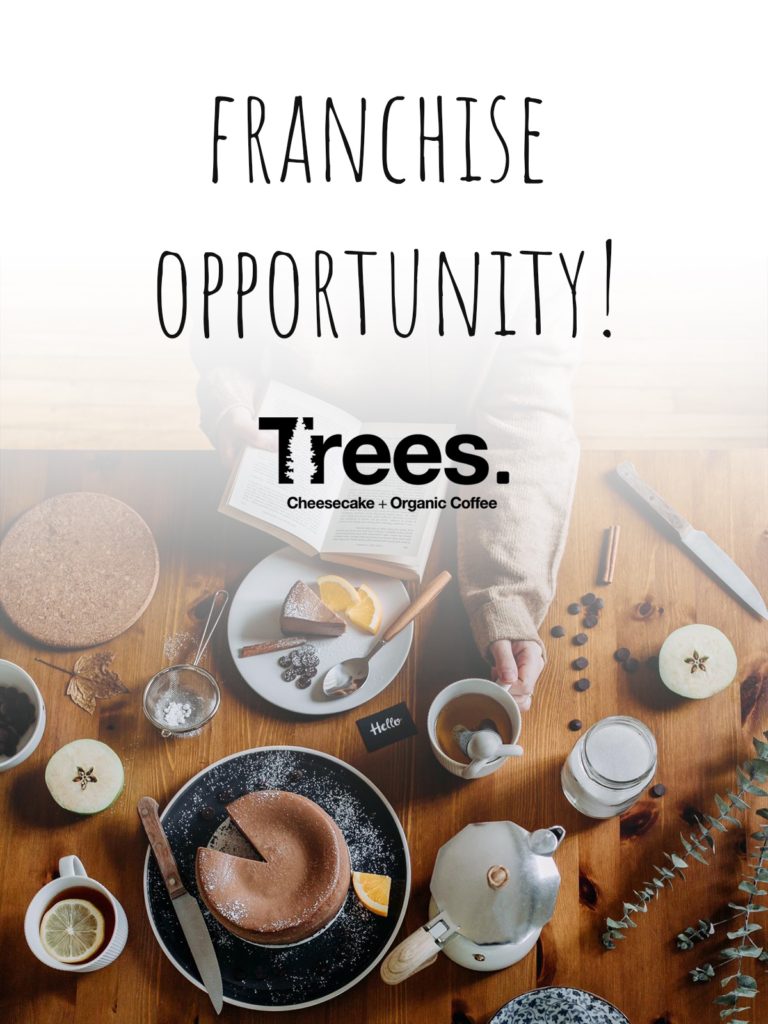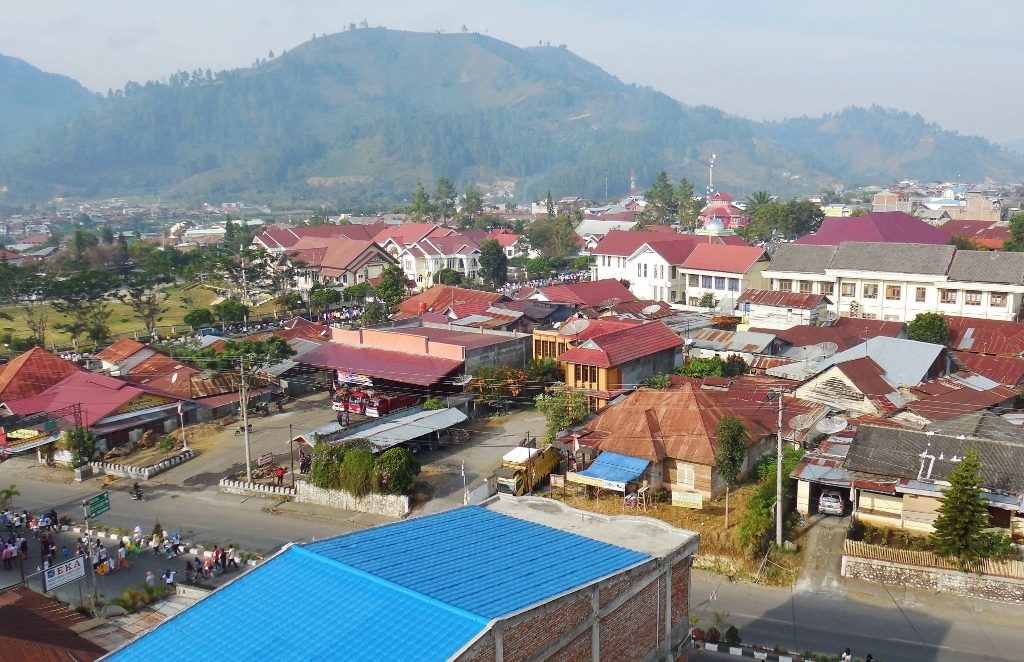
Sumatra coffee is one of many single origin, organic coffees that we source and serve. Coffees from Sumatra are well known for their distinct flavour characteristics influenced by volcanic terroir and a unique processing method. While the most famous and expensive coffee in the world comes from Sumatra, Lopi Luwak via the disgestive track of a Civet, there are many other superior Sumatran coffees of better value to enjoy. The particular varietal that we offer is from Takengon in the beautiful northern highlands. Get to know this exotic coffee, from crop to cup, in our profile on Sumatra.
The Island of Gold
Sumatra is a beautiful Indonesian island in Southeast Asia known in ancient times as the Island of Gold, because of its rich gold deposits. Coffee was introduced to Indonesia by the Dutch traders and colonialists in the 18th century. Today, Sumatra is the largest producer of Indonesian coffee with Indonesia being the fourth largest coffee producer in the world.

Coffee Farmers from Takengon
The organic Coffee that we source through fair trade terms, roast and serve is from the Aceh province at the northern tip of Sumatra. The coffee beans are cultivated at elevations of 850 to 1500 metres by various smallholder farmers around the town of Takengon on the shores of Lake Laut Tawar. The landscape is impressive with lush rainforests, dramatic valleys and undulating volcanic terrain. The people in this region are referred to as Gayonese people because of their proximity to Gayo Mountain.
Like the majority of Indonesia’s coffee production, coffee is grown at small family farms or home garden plots that are very traditional, and mainly farmed by women. Most farms average a hectare or less, with coffee being one of several crops. Very few coffee estates or cooperatives are found on the island.

Wet Hulled to Preserve Unique Characteristics
On Sumatra, Coffee plants (primarily Arabica) are organically grown on very fertile volcanic loam under the shade of trees. Then the coffee cherries are naturally processed with a wet hulling (also called semi-washed) method that is unique to the island.
In this process, after picking, the farmers remove the skin of the coffee cherry with handmade pulp machine. The skinless beans are placed in bags and left overnight to ferment and breakdown the fruit layer. In the morning, the remaining fruit (mucilage) is washed off by hand. The beans in their parchment are dried in the open sun to a 30-40% moisture level. The beans, still wrapped in their parchment, leave the farm at a higher moisture level. Once at the mill, the parchment is removed or hulled and the beans dried again in the sun to produce an opal-green appearance that is indicative of semi-washed Sumatra coffee beans.
King of Dark Roast: The Flavours of Sumatra Coffee
One of the main benefits of the wet hulled process is that it preserves the unique flavour nuances and richness of the coffee bean, producing a clean coffee with a fuller body and lower acidity.
Sumatra coffee lends well to being dark roasted and is sometimes referred to as the ‘king of the dark roast’. The roasted coffee delivers a bold and complex experience with a vibrant deep taste that is earthy, herbaceous, dark chocolatey, and smoky-musky (pipe tobacco), yet finishes with a sweet and smooth aftertaste. Subtle notes of berry and vanilla bean can also be detected.
The Trees Organic Sumatra coffee beans are dark roasted in small batches at our Granville Street café and roasting house. You can enjoy our roasted coffee from any of our coffeehouse locations in Vancouver. For home brewing, our Sumatra coffee is available for purchasing as whole or ground beans.
